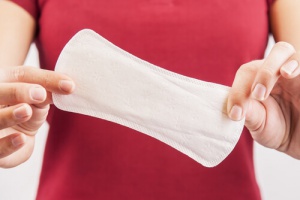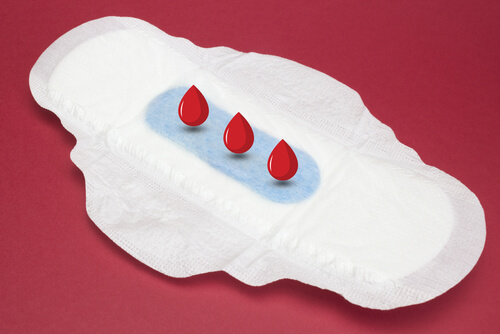Pantyliners: Do they Benefit or Harm Feminine Health?

Using daily pantyliners is more and more common for women. This with the purpose of keeping underwear dry and free of liquids and daily moisture. They also prevent possible odors and have a greater sensation of cleanliness.
But are they good for feminine health? Or are they harmful? We will clear up these questions and give you advice on how to keep your private area healthy and free from annoying infections.
Just like how you find new brands and ways that adapt to the different styles of underwear that you wear in the store every day, you may also hear that they are not as beneficial as the advertisements say.
There are certain requirements for your genital area to be in its best state. It’s important to know how to avoid suffering from the discomforts of the use of these products. The discomforts include burning and irritation and can interfere with your daily routine, self-esteem, and even affecting the intimacy with your significant other.
You should keep in mind that if you cannot stop using daily pantyliners, there are tips that can help you avoid future harm.
Tips for a Healthy Genital Area
Every woman is different, which means that some of us will benefit from something that harms someone else, and vice versa.
In general terms, we can mention that:
Firstly, before buying them, make sure that they are breathable. Avoid plastic covering and make sure it is more porous. Remember that your genital area needs to be ventilated so that moisture does not stay there and cause infections.
You miay also like:

It is also very important to properly wash your hands before and after using the bathroom and when touching pantyliners.
Other Tips to Prevent Infections with Pantyliners Are:
- The vaginal area should not be completed hair free because pubic hairs protect the area.
- Proper hygiene is also vital, especially during menstruation.
- Avoid using hand soaps because they can alter the vagina’s pH. Neutral soaps or soaps that are sold especially for this area are varied and offer good genital hygiene. The best kinds are the ones with acidic pH to keep the area clean and protected.
- Wear cotton underwear because it allows proper ventilation of the area.
- Avoid wearing tight pants for long periods of time because they can increase temperature and moisture in the area, an environment that is favorable to opportunistic germs.
- Don’t wear clothing with synthetic material.
- Sleep in loose clothing.
- Avoid sitting down for long periods.
- Don’t use intimate deodorants. Fragrances only disguise odors and can cause irritation.
- Keep the area as dry as possible.
Factors that Influence Infections
The prolonged use of antibiotics, pregnancy, and diabetes are factors that influence infections. If you are within a group, you should take more caution.
Be Cautious if You Have these Symptoms
- Increase in the consistency and amount of vaginal fluid
- Changes in secretion color
- Unpleasant odor
- Pain and burning when urinating
- Pain during sexual relations

Avoid Self-Medicating
Most women do not see a doctor whether it is because of fear or shame.
Meanwhile, the agents that cause the infection to get stronger and make it more difficult to get rid of them.
When you suspect that you have a vaginal infection, avoid self-medicating and see a doctor that if treated on time, it can be cured with simple means.
When you self-medicate, you will only make the situation worse.
It is of high importance that your doctor chooses the proper medication for each situation in particular. If you are suffering from some symptom that you suspect is a vaginal infection, stop using pantyliners.
A poorly treated vaginal infection can cause problems in urinary tracts like severe and dangerous infections for your health.
Experts say that most women have suffered or will suffer at some point from a vaginal infection.
However, wouldn’t it be better to prevent them than suffer from them?
This text is provided for informational purposes only and does not replace consultation with a professional. If in doubt, consult your specialist.








